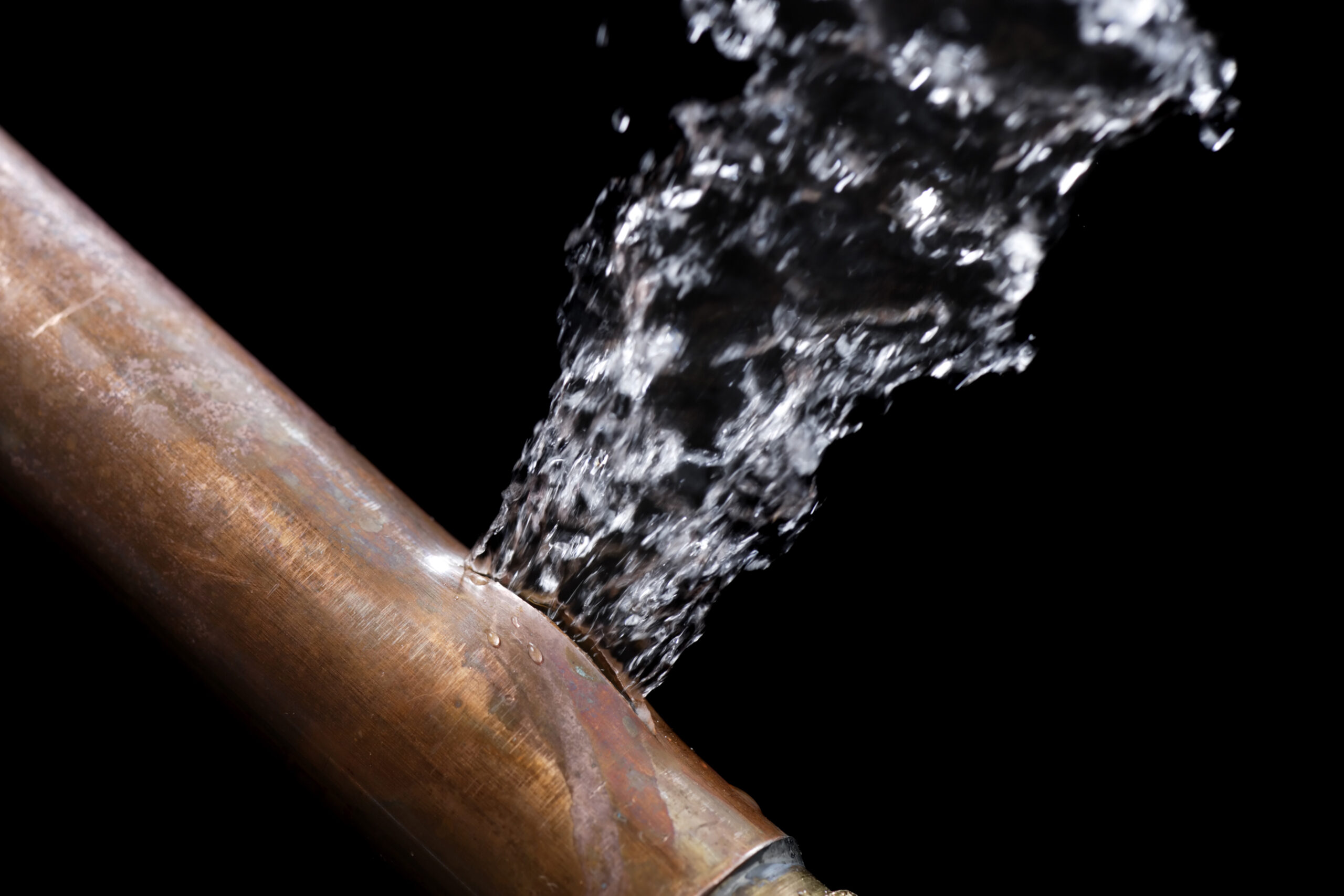
Water can be the cause of huge damage in the home, and in a rented property you need to be extremely vigilant for problems it may be causing or about to cause. Water leaks can be slow and persistent and are not always visible or noticeable, while others are more obvious and immediate. Sometimes it is the smaller ones which can develop over time and cause a major issue before you are able to take any action. But one of the most common causes of water leaks is burst pipes, and particularly around winter time.
What can cause burst pipes?
Burst pipes can occur when the water inside them freezes. In such an instance the pipes will expand and therefore the pressure inside them increases. This can lead to the pipes eventually bursting and causing extensive water damage inside a home. Although a problem with frozen pipes often starts externally, the damage can be seen inside the home, so it is important to be vigilant.
Other causes of burst pipes are issues such as wear and tear, poor installation, poor maintenance, clogs and blockages, high water pressure and ground movement.
Who is liable for the damage caused by burst pipes?
In most of these cases your landlord is responsible for monitoring the condition of pipework and for carrying out routine maintenance, and therefore is liable for any damage if a breakdown of this leads to burst pipes. During winter months your landlord may expect you to inspect external pipes to ensure they are not freezing up, or to report obvious signs of pipes freezing, but generally speaking the landlord is responsible, and certainly if a tenant has reported a potential or existing problem and nothing has been done about it. However, if the cause of a burst pipe is a result of pipes or drains being blocked, i.e. through a tenant disposing of oils and fats from cooking, or other items which don’t break down and can cause blockages, then the tenant ‘could’ be liable for the damage.
What should you do if a pipe bursts?
If a pipe bursts you will most likely know about it straight away, assuming you are in the house when it happens. A water leak is likely to occur immediately and can start to damage the property. In such an instance you should:
- Turn off the water supply – This should be done by turning off the internal stopcock, which is usually situated underneath the kitchen sink.
- Drain the system – In order to minimise water damage you should immediately drain any water that is left in the system, so that it can’t escape into your property. So flush the toilet and turn on all cold taps. This will also relieve any pressure left in the system and should help slow down any water discharge.
- Turn off power – If you suspect water damage may be about to impact on the electric supply you should turn this off at your fuse box.
- Document damage – Once the water discharge is under control, assess the damage and take photos and videos, including structural damage to walls and ceilings, damage to fittings and carpets, and damage to your personal belongings.
- Contact your landlord – Immediately contact your landlord to report the problem. They may decide to visit the property themselves, or they may call a plumber. They may also ask you to call a plumber. It is important that you contact the landlord before doing anything else, so that you are seen to be doing everything as per your tenancy agreement, and the landlord can make the key decisions.
- Contact Legal HD – If the issue is dealt with straight away by the landlord, this should include all repairs and replacing of carpets etc. You may still have grounds for claiming the cost of damage to your personal belongings, so contact Legal HD if the landlord doesn’t offer to compensate you for this damage. If the landlord has done nothing about the problem, or has asked you to deal with it, you can make a housing disrepair claim through Legal HD. This will cover the cost of repairs, the cost of replacing carpets and other furnishings, the cost of damage to your personal belongings, discomfort and loss of earnings directly related to the incident. Before making a claim, however, it is important that you give the landlord a reasonable amount of time to act. If the damage is excessive and the home is unliveable, it is reasonable for you to act sooner in making a claim.
Making a housing disrepair claim for burst pipes
The evidence you document when a burst pipe causes an internal water leak is essential in securing adequate compensation. Retain this and add to it with further evidence if the problems get worse before the landlord takes any action. If left, damage from water leaks can lead to problems with damp and mould, for example. This evidence can all contribute to an ongoing housing disrepair claim.
Contact Legal HD – the housing disrepair claim specialists – if you have experienced burst pipes and internal water leaks, or have reported a problem to your landlord that has not been dealt with, and we can help you secure adequate compensation.



